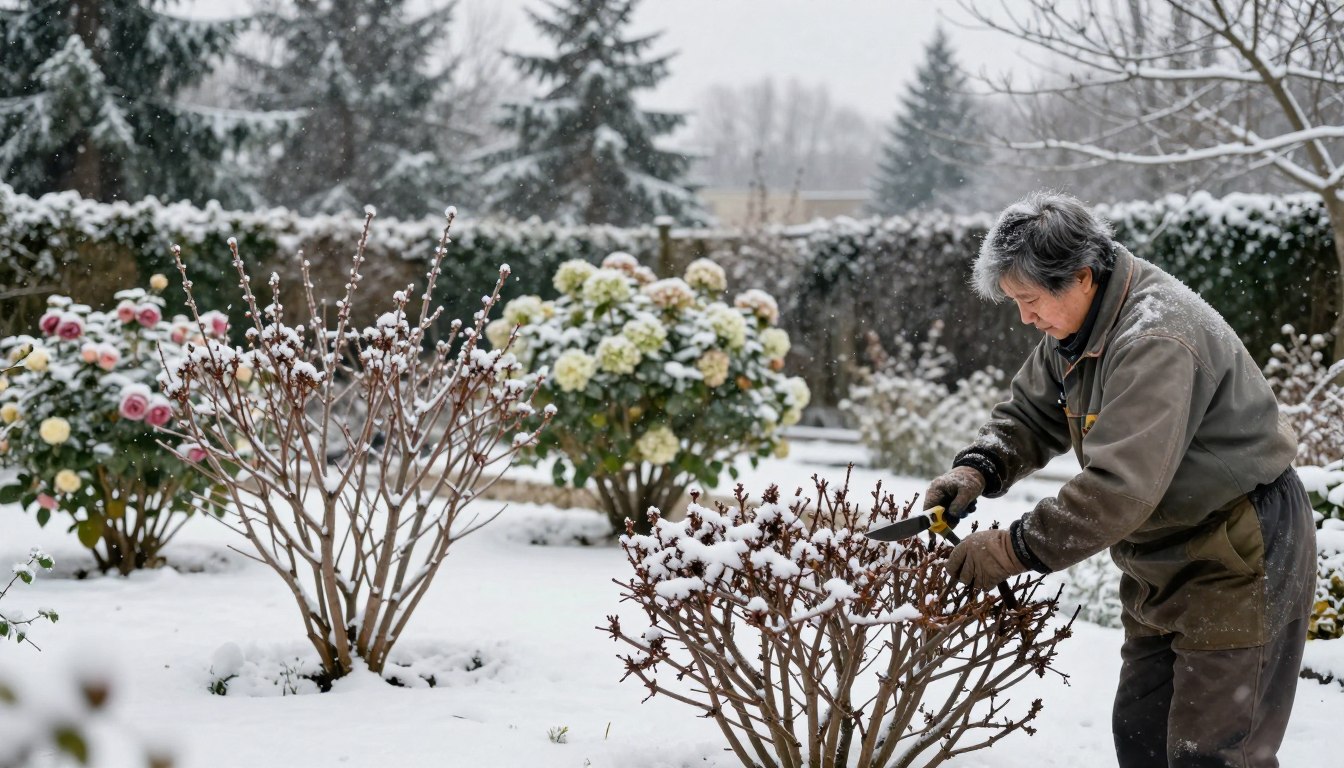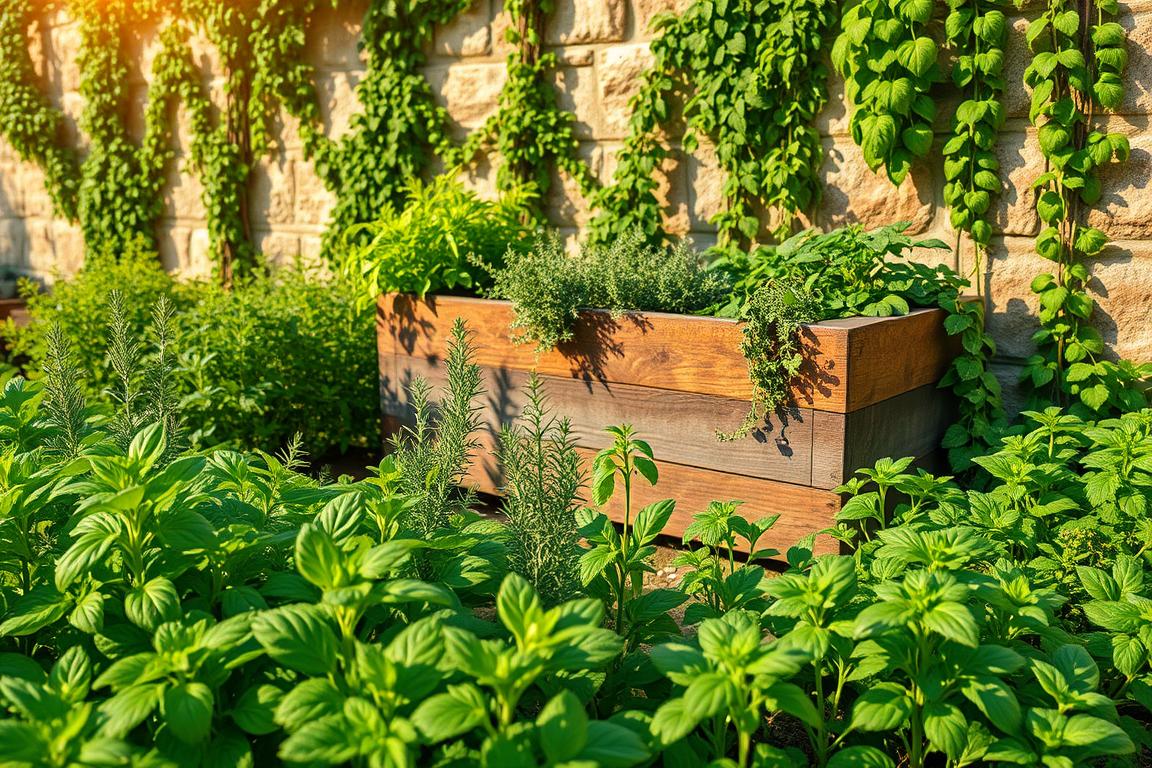Snakes can be quite unsettling for many people. You don’t want them in your yard or home. While there’s no foolproof way to keep snakes away, you can make your garden less inviting. This includes removing hiding spots, getting rid of food, sealing entry points, and using barriers and deterrents.
Key Takeaways
- Eliminate potential hiding spots in your garden to make it less appealing to snakes.
- Remove food sources that could attract snakes, such as rodents and other small prey.
- Seal any entry points to your home and outbuildings to prevent snakes from getting inside.
- Use physical barriers and natural deterrents to discourage snakes from entering your garden.
- Be cautious and vigilant when working in your garden, as snakes may still find their way in.
Make Your Garden Unattractive to Snakes
To keep snakes away, start by making your garden less inviting. Remove places where they can hide and get rid of food sources. This will help keep your outdoor space snake-free.
Remove Potential Hiding Spots
Snakes like places with lots of cover. To make your garden less appealing, do the following:
- Keep the grass short and well-trimmed
- Prune bushes, shrubs, and other vegetation to maintain an open, uncluttered landscape
- Avoid using thick mulch piles, which can provide shelter for snakes
- Remove rock piles, wood piles, and other potential hiding spots
Eliminate Food Sources
Snakes eat what they can find easily. To keep them away, consider these tips:
- Avoid leaving pet food outside, as this can attract rodents and other small animals that snakes prey on
- Remove bird feeders, as they can also attract the rodents that snakes eat
- Seal any cracks, crevices, or openings around your home that snakes could use to gain access
By following these tips, you can make your yard less inviting to snakes. This will help keep your family and pets safe.
Seal Entry Points to Your Home
Keeping your home snake-free is key. Snakes can squeeze into tiny openings, so check your property well. Seal any spots where snakes might get in.
Look at your home’s foundation closely. Check for cracks, gaps, and vents that snakes could use to enter. Use strong caulk or sealants to block these spots. This will keep snakes out of your garden.
- Inspect the foundation for cracks or gaps that could allow snakes to enter.
- Seal any openings around utility pipes, vents, or other penetrations in the exterior walls.
- Make sure crawl spaces and attics are properly sealed, as snakes may use these areas to gain access to your home.
Also, think about putting up snake-proof fencing around your property. This can stop snakes from even trying to get onto your land. It adds extra protection to your snake prevention gardens.
| Method | Effectiveness | Maintenance |
|---|---|---|
| Caulking and Sealing | High | Low |
| Snake-Proof Fencing | Very High | Moderate |
By sealing entry points and using other methods to deter snakes, you can lower the risk of snakes getting into your home. This ensures a safe, snake-resistant garden for your family.
snake proof garden
To make your garden less inviting to snakes, remove their hiding spots and food. Use snake-proof fencing and snake barrier solutions to create a safe area. These steps help prevent snakes from entering your outdoor space.
Fortify Your Boundaries
A snake barrier fence is a top way to keep snakes out of your garden snake control methods. These fences are made of galvanized wire mesh and go underground. They are angled outwards, making it hard for snakes to cross over. This turns your yard into a snake-resistant garden and snake-free backyard.
Leverage Natural Deterrents
For a natural approach to snake prevention, use certain plants and items. Plants like lemongrass, marigolds, and onions can keep snakes away. You can also try essential oils, ammonia, or vinegar as low-maintenance snake deterrents.
These methods might not work for all snakes, but they help. They are part of a venomous snake prevention plan for your garden.

“Incorporating a combination of physical barriers and natural deterrents can go a long way in creating a snake-proof garden that is both visually appealing and safe for your family.”
Be Cautious Around Snakes
When you’re into snake-proof gardening and serpent-safe landscaping, knowing how to handle snakes is key. Snakes are important in nature, but seeing one in your yard can be scary. If you see a snake, stay calm and don’t try to touch or get rid of it yourself.
It’s best to spray the snake with a hose to help it leave, or call a wildlife control professional for safe removal. Trying to kill or handle snakes yourself is when most snake bites happen. Always think of any snake as venomous and keep away from it.
Snakes keep the ecosystem balanced, and using rattlesnake repellent vegetation or a reptile barrier fence can make your garden less inviting to them. Being careful and secure gardening against snakes lets you enjoy your yard while respecting snakes’ place in nature.
“The best way to avoid a snake bite is to leave the snake alone and call for professional help.”
If you meet a snake, stay calm and don’t move suddenly. Anti-venom plants can be placed in your garden to deter snakes, helping your snake-proof gardening efforts.

Understanding how to prevent venomous visitor and secure gardening against snakes helps you make a low-risk garden design. This way, you can enjoy your outdoor space while respecting snakes’ role in nature.
Conclusion
Using a mix of snake-proofing methods can make your garden less appealing to snakes. Remove places where snakes can hide, get rid of food sources, seal up holes, and use barriers and natural repellents. These steps can greatly lower the chance of seeing snakes in your garden.
A well-kept garden not only looks better but also keeps you, your family, and pets safe from snakes. Take the time to check your garden and use the right snake-proofing steps. This will make your outdoor space peaceful and secure.
Being careful and taking action can help you enjoy your garden without snakes. By making your space less welcoming to snakes, you can create a safe and peaceful place for everyone.
FAQ
Q: What are some ways to make my garden less attractive to snakes?
A: To make your garden less appealing to snakes, start by removing their hiding spots and food. Keep the grass short and trim bushes and shrubs. Avoid thick mulch piles and remove rock and wood piles.
Don’t leave pet food outside, take down bird feeders, and seal any cracks or openings around your home. This will help keep snakes away.
Q: How can I seal entry points to my home to keep snakes out?
A: Snakes can fit through tiny openings, so sealing your home is key. Check the foundation, vents, and crawl spaces for any cracks or gaps. Use caulk or other materials to block these openings.
Q: What kind of barriers and deterrents can I use to keep snakes out of my garden?
A: Use physical barriers and deterrents to keep snakes away from your garden. Consider installing a snake-proof fence made of galvanized wire mesh. It should be buried in the ground and slanted outward.
Try using natural repellents like certain plants, essential oils, or household items like ammonia or vinegar. These can help deter snakes.
Q: What should I do if I encounter a snake in my yard?
A: If you see a snake in your yard, be careful and don’t try to kill or handle it. Most snake bites happen when people try to handle them. Assume it’s venomous and stay away.
Try spraying the snake with a hose to encourage it to leave. Or, call a wildlife control professional to safely remove it.






